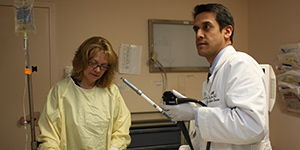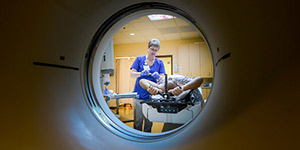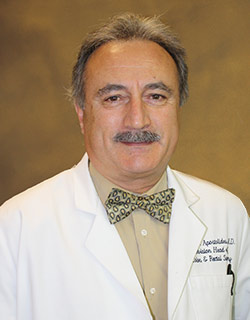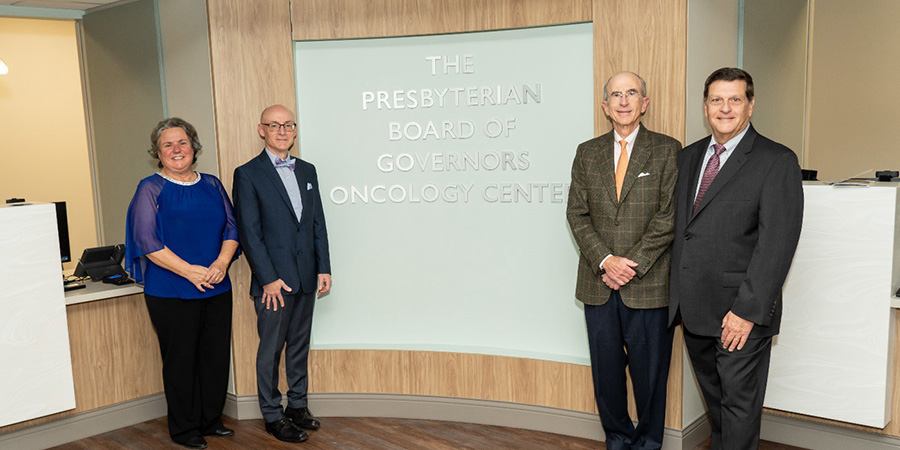Error message
Warning: unserialize(): Error at offset 0 of 62 bytes in Drupal\hg_features\Controller\APIController->export() (line 527 of modules/custom/hg_features/src/Controller/APIController.php).
Drupal\hg_features\Controller\APIController->export() (Line: 249) Drupal\hg_features\Controller\ContentAPIController->export() (Line: 461) Drupal\hg_features\Controller\NodeAPIController->export() (Line: 916) Drupal\hg_features\Controller\NodeAPIController->list() (Line: 450) Drupal\hg_mercury_card\Plugin\Block\ContentFeedBlock->__construct() (Line: 718) Drupal\hg_mercury_card\Plugin\Block\ContentFeedBlock::create() (Line: 21) Drupal\Core\Plugin\Factory\ContainerFactory->createInstance() (Line: 76) Drupal\Component\Plugin\PluginManagerBase->createInstance() (Line: 62) Drupal\Core\Plugin\DefaultSingleLazyPluginCollection->initializePlugin() (Line: 57) Drupal\block\BlockPluginCollection->initializePlugin() (Line: 80) Drupal\Component\Plugin\LazyPluginCollection->get() (Line: 45) Drupal\block\BlockPluginCollection->get() (Line: 88) Drupal\Core\Plugin\DefaultSingleLazyPluginCollection->setConfiguration() (Line: 104) Drupal\Core\Plugin\DefaultSingleLazyPluginCollection->addInstanceId() (Line: 55) Drupal\Core\Plugin\DefaultSingleLazyPluginCollection->__construct() (Line: 34) Drupal\block\BlockPluginCollection->__construct() (Line: 158) Drupal\block\Entity\Block->getPluginCollection() (Line: 147) Drupal\block\Entity\Block->getPlugin() (Line: 118) Drupal\block\BlockAccessControlHandler->checkAccess() (Line: 109) Drupal\Core\Entity\EntityAccessControlHandler->access() (Line: 329) Drupal\Core\Entity\EntityBase->access() (Line: 63) Drupal\block\BlockRepository->getVisibleBlocksPerRegion() (Line: 138) Drupal\block\Plugin\DisplayVariant\BlockPageVariant->build() (Line: 270) Drupal\Core\Render\MainContent\HtmlRenderer->prepare() (Line: 128) Drupal\Core\Render\MainContent\HtmlRenderer->renderResponse() (Line: 90) Drupal\Core\EventSubscriber\MainContentViewSubscriber->onViewRenderArray() call_user_func() (Line: 111) Drupal\Component\EventDispatcher\ContainerAwareEventDispatcher->dispatch() (Line: 186) Symfony\Component\HttpKernel\HttpKernel->handleRaw() (Line: 76) Symfony\Component\HttpKernel\HttpKernel->handle() (Line: 53) Drupal\Core\StackMiddleware\Session->handle() (Line: 48) Drupal\Core\StackMiddleware\KernelPreHandle->handle() (Line: 28) Drupal\Core\StackMiddleware\ContentLength->handle() (Line: 201) Drupal\page_cache\StackMiddleware\PageCache->fetch() (Line: 138) Drupal\page_cache\StackMiddleware\PageCache->lookup() (Line: 87) Drupal\page_cache\StackMiddleware\PageCache->handle() (Line: 48) Drupal\Core\StackMiddleware\ReverseProxyMiddleware->handle() (Line: 51) Drupal\Core\StackMiddleware\NegotiationMiddleware->handle() (Line: 36) Drupal\Core\StackMiddleware\AjaxPageState->handle() (Line: 51) Drupal\Core\StackMiddleware\StackedHttpKernel->handle() (Line: 741) Drupal\Core\DrupalKernel->handle() (Line: 19)
Warning: unserialize(): Error at offset 0 of 62 bytes in Drupal\hg_features\Controller\APIController->export() (line 527 of modules/custom/hg_features/src/Controller/APIController.php).
Drupal\hg_features\Controller\APIController->export() (Line: 249) Drupal\hg_features\Controller\ContentAPIController->export() (Line: 461) Drupal\hg_features\Controller\NodeAPIController->export() (Line: 916) Drupal\hg_features\Controller\NodeAPIController->list() (Line: 450) Drupal\hg_mercury_card\Plugin\Block\ContentFeedBlock->__construct() (Line: 718) Drupal\hg_mercury_card\Plugin\Block\ContentFeedBlock::create() (Line: 21) Drupal\Core\Plugin\Factory\ContainerFactory->createInstance() (Line: 76) Drupal\Component\Plugin\PluginManagerBase->createInstance() (Line: 62) Drupal\Core\Plugin\DefaultSingleLazyPluginCollection->initializePlugin() (Line: 57) Drupal\block\BlockPluginCollection->initializePlugin() (Line: 80) Drupal\Component\Plugin\LazyPluginCollection->get() (Line: 45) Drupal\block\BlockPluginCollection->get() (Line: 88) Drupal\Core\Plugin\DefaultSingleLazyPluginCollection->setConfiguration() (Line: 104) Drupal\Core\Plugin\DefaultSingleLazyPluginCollection->addInstanceId() (Line: 55) Drupal\Core\Plugin\DefaultSingleLazyPluginCollection->__construct() (Line: 34) Drupal\block\BlockPluginCollection->__construct() (Line: 158) Drupal\block\Entity\Block->getPluginCollection() (Line: 147) Drupal\block\Entity\Block->getPlugin() (Line: 118) Drupal\block\BlockAccessControlHandler->checkAccess() (Line: 109) Drupal\Core\Entity\EntityAccessControlHandler->access() (Line: 329) Drupal\Core\Entity\EntityBase->access() (Line: 63) Drupal\block\BlockRepository->getVisibleBlocksPerRegion() (Line: 138) Drupal\block\Plugin\DisplayVariant\BlockPageVariant->build() (Line: 270) Drupal\Core\Render\MainContent\HtmlRenderer->prepare() (Line: 128) Drupal\Core\Render\MainContent\HtmlRenderer->renderResponse() (Line: 90) Drupal\Core\EventSubscriber\MainContentViewSubscriber->onViewRenderArray() call_user_func() (Line: 111) Drupal\Component\EventDispatcher\ContainerAwareEventDispatcher->dispatch() (Line: 186) Symfony\Component\HttpKernel\HttpKernel->handleRaw() (Line: 76) Symfony\Component\HttpKernel\HttpKernel->handle() (Line: 53) Drupal\Core\StackMiddleware\Session->handle() (Line: 48) Drupal\Core\StackMiddleware\KernelPreHandle->handle() (Line: 28) Drupal\Core\StackMiddleware\ContentLength->handle() (Line: 201) Drupal\page_cache\StackMiddleware\PageCache->fetch() (Line: 138) Drupal\page_cache\StackMiddleware\PageCache->lookup() (Line: 87) Drupal\page_cache\StackMiddleware\PageCache->handle() (Line: 48) Drupal\Core\StackMiddleware\ReverseProxyMiddleware->handle() (Line: 51) Drupal\Core\StackMiddleware\NegotiationMiddleware->handle() (Line: 36) Drupal\Core\StackMiddleware\AjaxPageState->handle() (Line: 51) Drupal\Core\StackMiddleware\StackedHttpKernel->handle() (Line: 741) Drupal\Core\DrupalKernel->handle() (Line: 19)
Warning: unserialize(): Error at offset 0 of 62 bytes in Drupal\hg_features\Controller\APIController->export() (line 527 of modules/custom/hg_features/src/Controller/APIController.php).
Drupal\hg_features\Controller\APIController->export() (Line: 249) Drupal\hg_features\Controller\ContentAPIController->export() (Line: 461) Drupal\hg_features\Controller\NodeAPIController->export() (Line: 916) Drupal\hg_features\Controller\NodeAPIController->list() (Line: 450) Drupal\hg_mercury_card\Plugin\Block\ContentFeedBlock->__construct() (Line: 718) Drupal\hg_mercury_card\Plugin\Block\ContentFeedBlock::create() (Line: 21) Drupal\Core\Plugin\Factory\ContainerFactory->createInstance() (Line: 76) Drupal\Component\Plugin\PluginManagerBase->createInstance() (Line: 62) Drupal\Core\Plugin\DefaultSingleLazyPluginCollection->initializePlugin() (Line: 57) Drupal\block\BlockPluginCollection->initializePlugin() (Line: 80) Drupal\Component\Plugin\LazyPluginCollection->get() (Line: 45) Drupal\block\BlockPluginCollection->get() (Line: 88) Drupal\Core\Plugin\DefaultSingleLazyPluginCollection->setConfiguration() (Line: 104) Drupal\Core\Plugin\DefaultSingleLazyPluginCollection->addInstanceId() (Line: 55) Drupal\Core\Plugin\DefaultSingleLazyPluginCollection->__construct() (Line: 34) Drupal\block\BlockPluginCollection->__construct() (Line: 158) Drupal\block\Entity\Block->getPluginCollection() (Line: 147) Drupal\block\Entity\Block->getPlugin() (Line: 118) Drupal\block\BlockAccessControlHandler->checkAccess() (Line: 109) Drupal\Core\Entity\EntityAccessControlHandler->access() (Line: 329) Drupal\Core\Entity\EntityBase->access() (Line: 63) Drupal\block\BlockRepository->getVisibleBlocksPerRegion() (Line: 138) Drupal\block\Plugin\DisplayVariant\BlockPageVariant->build() (Line: 270) Drupal\Core\Render\MainContent\HtmlRenderer->prepare() (Line: 128) Drupal\Core\Render\MainContent\HtmlRenderer->renderResponse() (Line: 90) Drupal\Core\EventSubscriber\MainContentViewSubscriber->onViewRenderArray() call_user_func() (Line: 111) Drupal\Component\EventDispatcher\ContainerAwareEventDispatcher->dispatch() (Line: 186) Symfony\Component\HttpKernel\HttpKernel->handleRaw() (Line: 76) Symfony\Component\HttpKernel\HttpKernel->handle() (Line: 53) Drupal\Core\StackMiddleware\Session->handle() (Line: 48) Drupal\Core\StackMiddleware\KernelPreHandle->handle() (Line: 28) Drupal\Core\StackMiddleware\ContentLength->handle() (Line: 201) Drupal\page_cache\StackMiddleware\PageCache->fetch() (Line: 138) Drupal\page_cache\StackMiddleware\PageCache->lookup() (Line: 87) Drupal\page_cache\StackMiddleware\PageCache->handle() (Line: 48) Drupal\Core\StackMiddleware\ReverseProxyMiddleware->handle() (Line: 51) Drupal\Core\StackMiddleware\NegotiationMiddleware->handle() (Line: 36) Drupal\Core\StackMiddleware\AjaxPageState->handle() (Line: 51) Drupal\Core\StackMiddleware\StackedHttpKernel->handle() (Line: 741) Drupal\Core\DrupalKernel->handle() (Line: 19)
Warning: unserialize(): Error at offset 0 of 214 bytes in Drupal\hg_features\Controller\APIController->export() (line 527 of modules/custom/hg_features/src/Controller/APIController.php).
Drupal\hg_features\Controller\APIController->export() (Line: 249) Drupal\hg_features\Controller\ContentAPIController->export() (Line: 461) Drupal\hg_features\Controller\NodeAPIController->export() (Line: 916) Drupal\hg_features\Controller\NodeAPIController->list() (Line: 450) Drupal\hg_mercury_card\Plugin\Block\ContentFeedBlock->__construct() (Line: 718) Drupal\hg_mercury_card\Plugin\Block\ContentFeedBlock::create() (Line: 21) Drupal\Core\Plugin\Factory\ContainerFactory->createInstance() (Line: 76) Drupal\Component\Plugin\PluginManagerBase->createInstance() (Line: 62) Drupal\Core\Plugin\DefaultSingleLazyPluginCollection->initializePlugin() (Line: 57) Drupal\block\BlockPluginCollection->initializePlugin() (Line: 80) Drupal\Component\Plugin\LazyPluginCollection->get() (Line: 45) Drupal\block\BlockPluginCollection->get() (Line: 88) Drupal\Core\Plugin\DefaultSingleLazyPluginCollection->setConfiguration() (Line: 104) Drupal\Core\Plugin\DefaultSingleLazyPluginCollection->addInstanceId() (Line: 55) Drupal\Core\Plugin\DefaultSingleLazyPluginCollection->__construct() (Line: 34) Drupal\block\BlockPluginCollection->__construct() (Line: 158) Drupal\block\Entity\Block->getPluginCollection() (Line: 147) Drupal\block\Entity\Block->getPlugin() (Line: 118) Drupal\block\BlockAccessControlHandler->checkAccess() (Line: 109) Drupal\Core\Entity\EntityAccessControlHandler->access() (Line: 329) Drupal\Core\Entity\EntityBase->access() (Line: 63) Drupal\block\BlockRepository->getVisibleBlocksPerRegion() (Line: 138) Drupal\block\Plugin\DisplayVariant\BlockPageVariant->build() (Line: 270) Drupal\Core\Render\MainContent\HtmlRenderer->prepare() (Line: 128) Drupal\Core\Render\MainContent\HtmlRenderer->renderResponse() (Line: 90) Drupal\Core\EventSubscriber\MainContentViewSubscriber->onViewRenderArray() call_user_func() (Line: 111) Drupal\Component\EventDispatcher\ContainerAwareEventDispatcher->dispatch() (Line: 186) Symfony\Component\HttpKernel\HttpKernel->handleRaw() (Line: 76) Symfony\Component\HttpKernel\HttpKernel->handle() (Line: 53) Drupal\Core\StackMiddleware\Session->handle() (Line: 48) Drupal\Core\StackMiddleware\KernelPreHandle->handle() (Line: 28) Drupal\Core\StackMiddleware\ContentLength->handle() (Line: 201) Drupal\page_cache\StackMiddleware\PageCache->fetch() (Line: 138) Drupal\page_cache\StackMiddleware\PageCache->lookup() (Line: 87) Drupal\page_cache\StackMiddleware\PageCache->handle() (Line: 48) Drupal\Core\StackMiddleware\ReverseProxyMiddleware->handle() (Line: 51) Drupal\Core\StackMiddleware\NegotiationMiddleware->handle() (Line: 36) Drupal\Core\StackMiddleware\AjaxPageState->handle() (Line: 51) Drupal\Core\StackMiddleware\StackedHttpKernel->handle() (Line: 741) Drupal\Core\DrupalKernel->handle() (Line: 19)
Warning: unserialize(): Error at offset 0 of 210 bytes in Drupal\hg_features\Controller\APIController->export() (line 527 of modules/custom/hg_features/src/Controller/APIController.php).
Drupal\hg_features\Controller\APIController->export() (Line: 249) Drupal\hg_features\Controller\ContentAPIController->export() (Line: 461) Drupal\hg_features\Controller\NodeAPIController->export() (Line: 916) Drupal\hg_features\Controller\NodeAPIController->list() (Line: 450) Drupal\hg_mercury_card\Plugin\Block\ContentFeedBlock->__construct() (Line: 718) Drupal\hg_mercury_card\Plugin\Block\ContentFeedBlock::create() (Line: 21) Drupal\Core\Plugin\Factory\ContainerFactory->createInstance() (Line: 76) Drupal\Component\Plugin\PluginManagerBase->createInstance() (Line: 62) Drupal\Core\Plugin\DefaultSingleLazyPluginCollection->initializePlugin() (Line: 57) Drupal\block\BlockPluginCollection->initializePlugin() (Line: 80) Drupal\Component\Plugin\LazyPluginCollection->get() (Line: 45) Drupal\block\BlockPluginCollection->get() (Line: 88) Drupal\Core\Plugin\DefaultSingleLazyPluginCollection->setConfiguration() (Line: 104) Drupal\Core\Plugin\DefaultSingleLazyPluginCollection->addInstanceId() (Line: 55) Drupal\Core\Plugin\DefaultSingleLazyPluginCollection->__construct() (Line: 34) Drupal\block\BlockPluginCollection->__construct() (Line: 158) Drupal\block\Entity\Block->getPluginCollection() (Line: 147) Drupal\block\Entity\Block->getPlugin() (Line: 118) Drupal\block\BlockAccessControlHandler->checkAccess() (Line: 109) Drupal\Core\Entity\EntityAccessControlHandler->access() (Line: 329) Drupal\Core\Entity\EntityBase->access() (Line: 63) Drupal\block\BlockRepository->getVisibleBlocksPerRegion() (Line: 138) Drupal\block\Plugin\DisplayVariant\BlockPageVariant->build() (Line: 270) Drupal\Core\Render\MainContent\HtmlRenderer->prepare() (Line: 128) Drupal\Core\Render\MainContent\HtmlRenderer->renderResponse() (Line: 90) Drupal\Core\EventSubscriber\MainContentViewSubscriber->onViewRenderArray() call_user_func() (Line: 111) Drupal\Component\EventDispatcher\ContainerAwareEventDispatcher->dispatch() (Line: 186) Symfony\Component\HttpKernel\HttpKernel->handleRaw() (Line: 76) Symfony\Component\HttpKernel\HttpKernel->handle() (Line: 53) Drupal\Core\StackMiddleware\Session->handle() (Line: 48) Drupal\Core\StackMiddleware\KernelPreHandle->handle() (Line: 28) Drupal\Core\StackMiddleware\ContentLength->handle() (Line: 201) Drupal\page_cache\StackMiddleware\PageCache->fetch() (Line: 138) Drupal\page_cache\StackMiddleware\PageCache->lookup() (Line: 87) Drupal\page_cache\StackMiddleware\PageCache->handle() (Line: 48) Drupal\Core\StackMiddleware\ReverseProxyMiddleware->handle() (Line: 51) Drupal\Core\StackMiddleware\NegotiationMiddleware->handle() (Line: 36) Drupal\Core\StackMiddleware\AjaxPageState->handle() (Line: 51) Drupal\Core\StackMiddleware\StackedHttpKernel->handle() (Line: 741) Drupal\Core\DrupalKernel->handle() (Line: 19)
Warning: unserialize(): Error at offset 0 of 211 bytes in Drupal\hg_features\Controller\APIController->export() (line 527 of modules/custom/hg_features/src/Controller/APIController.php).
Drupal\hg_features\Controller\APIController->export() (Line: 249) Drupal\hg_features\Controller\ContentAPIController->export() (Line: 461) Drupal\hg_features\Controller\NodeAPIController->export() (Line: 916) Drupal\hg_features\Controller\NodeAPIController->list() (Line: 450) Drupal\hg_mercury_card\Plugin\Block\ContentFeedBlock->__construct() (Line: 718) Drupal\hg_mercury_card\Plugin\Block\ContentFeedBlock::create() (Line: 21) Drupal\Core\Plugin\Factory\ContainerFactory->createInstance() (Line: 76) Drupal\Component\Plugin\PluginManagerBase->createInstance() (Line: 62) Drupal\Core\Plugin\DefaultSingleLazyPluginCollection->initializePlugin() (Line: 57) Drupal\block\BlockPluginCollection->initializePlugin() (Line: 80) Drupal\Component\Plugin\LazyPluginCollection->get() (Line: 45) Drupal\block\BlockPluginCollection->get() (Line: 88) Drupal\Core\Plugin\DefaultSingleLazyPluginCollection->setConfiguration() (Line: 104) Drupal\Core\Plugin\DefaultSingleLazyPluginCollection->addInstanceId() (Line: 55) Drupal\Core\Plugin\DefaultSingleLazyPluginCollection->__construct() (Line: 34) Drupal\block\BlockPluginCollection->__construct() (Line: 158) Drupal\block\Entity\Block->getPluginCollection() (Line: 147) Drupal\block\Entity\Block->getPlugin() (Line: 118) Drupal\block\BlockAccessControlHandler->checkAccess() (Line: 109) Drupal\Core\Entity\EntityAccessControlHandler->access() (Line: 329) Drupal\Core\Entity\EntityBase->access() (Line: 63) Drupal\block\BlockRepository->getVisibleBlocksPerRegion() (Line: 138) Drupal\block\Plugin\DisplayVariant\BlockPageVariant->build() (Line: 270) Drupal\Core\Render\MainContent\HtmlRenderer->prepare() (Line: 128) Drupal\Core\Render\MainContent\HtmlRenderer->renderResponse() (Line: 90) Drupal\Core\EventSubscriber\MainContentViewSubscriber->onViewRenderArray() call_user_func() (Line: 111) Drupal\Component\EventDispatcher\ContainerAwareEventDispatcher->dispatch() (Line: 186) Symfony\Component\HttpKernel\HttpKernel->handleRaw() (Line: 76) Symfony\Component\HttpKernel\HttpKernel->handle() (Line: 53) Drupal\Core\StackMiddleware\Session->handle() (Line: 48) Drupal\Core\StackMiddleware\KernelPreHandle->handle() (Line: 28) Drupal\Core\StackMiddleware\ContentLength->handle() (Line: 201) Drupal\page_cache\StackMiddleware\PageCache->fetch() (Line: 138) Drupal\page_cache\StackMiddleware\PageCache->lookup() (Line: 87) Drupal\page_cache\StackMiddleware\PageCache->handle() (Line: 48) Drupal\Core\StackMiddleware\ReverseProxyMiddleware->handle() (Line: 51) Drupal\Core\StackMiddleware\NegotiationMiddleware->handle() (Line: 36) Drupal\Core\StackMiddleware\AjaxPageState->handle() (Line: 51) Drupal\Core\StackMiddleware\StackedHttpKernel->handle() (Line: 741) Drupal\Core\DrupalKernel->handle() (Line: 19)
Warning: unserialize(): Error at offset 0 of 62 bytes in Drupal\hg_features\Controller\APIController->export() (line 527 of modules/custom/hg_features/src/Controller/APIController.php).
Drupal\hg_features\Controller\APIController->export() (Line: 249) Drupal\hg_features\Controller\ContentAPIController->export() (Line: 461) Drupal\hg_features\Controller\NodeAPIController->export() (Line: 916) Drupal\hg_features\Controller\NodeAPIController->list() (Line: 450) Drupal\hg_mercury_card\Plugin\Block\ContentFeedBlock->__construct() (Line: 718) Drupal\hg_mercury_card\Plugin\Block\ContentFeedBlock::create() (Line: 21) Drupal\Core\Plugin\Factory\ContainerFactory->createInstance() (Line: 76) Drupal\Component\Plugin\PluginManagerBase->createInstance() (Line: 62) Drupal\Core\Plugin\DefaultSingleLazyPluginCollection->initializePlugin() (Line: 57) Drupal\block\BlockPluginCollection->initializePlugin() (Line: 80) Drupal\Component\Plugin\LazyPluginCollection->get() (Line: 45) Drupal\block\BlockPluginCollection->get() (Line: 88) Drupal\Core\Plugin\DefaultSingleLazyPluginCollection->setConfiguration() (Line: 104) Drupal\Core\Plugin\DefaultSingleLazyPluginCollection->addInstanceId() (Line: 55) Drupal\Core\Plugin\DefaultSingleLazyPluginCollection->__construct() (Line: 34) Drupal\block\BlockPluginCollection->__construct() (Line: 158) Drupal\block\Entity\Block->getPluginCollection() (Line: 147) Drupal\block\Entity\Block->getPlugin() (Line: 118) Drupal\block\BlockAccessControlHandler->checkAccess() (Line: 109) Drupal\Core\Entity\EntityAccessControlHandler->access() (Line: 329) Drupal\Core\Entity\EntityBase->access() (Line: 63) Drupal\block\BlockRepository->getVisibleBlocksPerRegion() (Line: 138) Drupal\block\Plugin\DisplayVariant\BlockPageVariant->build() (Line: 270) Drupal\Core\Render\MainContent\HtmlRenderer->prepare() (Line: 128) Drupal\Core\Render\MainContent\HtmlRenderer->renderResponse() (Line: 90) Drupal\Core\EventSubscriber\MainContentViewSubscriber->onViewRenderArray() call_user_func() (Line: 111) Drupal\Component\EventDispatcher\ContainerAwareEventDispatcher->dispatch() (Line: 186) Symfony\Component\HttpKernel\HttpKernel->handleRaw() (Line: 76) Symfony\Component\HttpKernel\HttpKernel->handle() (Line: 53) Drupal\Core\StackMiddleware\Session->handle() (Line: 48) Drupal\Core\StackMiddleware\KernelPreHandle->handle() (Line: 28) Drupal\Core\StackMiddleware\ContentLength->handle() (Line: 201) Drupal\page_cache\StackMiddleware\PageCache->fetch() (Line: 138) Drupal\page_cache\StackMiddleware\PageCache->lookup() (Line: 87) Drupal\page_cache\StackMiddleware\PageCache->handle() (Line: 48) Drupal\Core\StackMiddleware\ReverseProxyMiddleware->handle() (Line: 51) Drupal\Core\StackMiddleware\NegotiationMiddleware->handle() (Line: 36) Drupal\Core\StackMiddleware\AjaxPageState->handle() (Line: 51) Drupal\Core\StackMiddleware\StackedHttpKernel->handle() (Line: 741) Drupal\Core\DrupalKernel->handle() (Line: 19)
Warning: unserialize(): Error at offset 0 of 62 bytes in Drupal\hg_features\Controller\APIController->export() (line 527 of modules/custom/hg_features/src/Controller/APIController.php).
Drupal\hg_features\Controller\APIController->export() (Line: 249) Drupal\hg_features\Controller\ContentAPIController->export() (Line: 461) Drupal\hg_features\Controller\NodeAPIController->export() (Line: 403) Drupal\hg_features\Controller\APIController->export() (Line: 249) Drupal\hg_features\Controller\ContentAPIController->export() (Line: 461) Drupal\hg_features\Controller\NodeAPIController->export() (Line: 916) Drupal\hg_features\Controller\NodeAPIController->list() (Line: 450) Drupal\hg_mercury_card\Plugin\Block\ContentFeedBlock->__construct() (Line: 718) Drupal\hg_mercury_card\Plugin\Block\ContentFeedBlock::create() (Line: 21) Drupal\Core\Plugin\Factory\ContainerFactory->createInstance() (Line: 76) Drupal\Component\Plugin\PluginManagerBase->createInstance() (Line: 62) Drupal\Core\Plugin\DefaultSingleLazyPluginCollection->initializePlugin() (Line: 57) Drupal\block\BlockPluginCollection->initializePlugin() (Line: 80) Drupal\Component\Plugin\LazyPluginCollection->get() (Line: 45) Drupal\block\BlockPluginCollection->get() (Line: 88) Drupal\Core\Plugin\DefaultSingleLazyPluginCollection->setConfiguration() (Line: 104) Drupal\Core\Plugin\DefaultSingleLazyPluginCollection->addInstanceId() (Line: 55) Drupal\Core\Plugin\DefaultSingleLazyPluginCollection->__construct() (Line: 34) Drupal\block\BlockPluginCollection->__construct() (Line: 158) Drupal\block\Entity\Block->getPluginCollection() (Line: 147) Drupal\block\Entity\Block->getPlugin() (Line: 118) Drupal\block\BlockAccessControlHandler->checkAccess() (Line: 109) Drupal\Core\Entity\EntityAccessControlHandler->access() (Line: 329) Drupal\Core\Entity\EntityBase->access() (Line: 63) Drupal\block\BlockRepository->getVisibleBlocksPerRegion() (Line: 138) Drupal\block\Plugin\DisplayVariant\BlockPageVariant->build() (Line: 270) Drupal\Core\Render\MainContent\HtmlRenderer->prepare() (Line: 128) Drupal\Core\Render\MainContent\HtmlRenderer->renderResponse() (Line: 90) Drupal\Core\EventSubscriber\MainContentViewSubscriber->onViewRenderArray() call_user_func() (Line: 111) Drupal\Component\EventDispatcher\ContainerAwareEventDispatcher->dispatch() (Line: 186) Symfony\Component\HttpKernel\HttpKernel->handleRaw() (Line: 76) Symfony\Component\HttpKernel\HttpKernel->handle() (Line: 53) Drupal\Core\StackMiddleware\Session->handle() (Line: 48) Drupal\Core\StackMiddleware\KernelPreHandle->handle() (Line: 28) Drupal\Core\StackMiddleware\ContentLength->handle() (Line: 201) Drupal\page_cache\StackMiddleware\PageCache->fetch() (Line: 138) Drupal\page_cache\StackMiddleware\PageCache->lookup() (Line: 87) Drupal\page_cache\StackMiddleware\PageCache->handle() (Line: 48) Drupal\Core\StackMiddleware\ReverseProxyMiddleware->handle() (Line: 51) Drupal\Core\StackMiddleware\NegotiationMiddleware->handle() (Line: 36) Drupal\Core\StackMiddleware\AjaxPageState->handle() (Line: 51) Drupal\Core\StackMiddleware\StackedHttpKernel->handle() (Line: 741) Drupal\Core\DrupalKernel->handle() (Line: 19)
Warning: unserialize(): Error at offset 0 of 171 bytes in Drupal\hg_features\Controller\APIController->export() (line 527 of modules/custom/hg_features/src/Controller/APIController.php).
Drupal\hg_features\Controller\APIController->export() (Line: 249) Drupal\hg_features\Controller\ContentAPIController->export() (Line: 461) Drupal\hg_features\Controller\NodeAPIController->export() (Line: 916) Drupal\hg_features\Controller\NodeAPIController->list() (Line: 450) Drupal\hg_mercury_card\Plugin\Block\ContentFeedBlock->__construct() (Line: 718) Drupal\hg_mercury_card\Plugin\Block\ContentFeedBlock::create() (Line: 21) Drupal\Core\Plugin\Factory\ContainerFactory->createInstance() (Line: 76) Drupal\Component\Plugin\PluginManagerBase->createInstance() (Line: 62) Drupal\Core\Plugin\DefaultSingleLazyPluginCollection->initializePlugin() (Line: 57) Drupal\block\BlockPluginCollection->initializePlugin() (Line: 80) Drupal\Component\Plugin\LazyPluginCollection->get() (Line: 45) Drupal\block\BlockPluginCollection->get() (Line: 88) Drupal\Core\Plugin\DefaultSingleLazyPluginCollection->setConfiguration() (Line: 104) Drupal\Core\Plugin\DefaultSingleLazyPluginCollection->addInstanceId() (Line: 55) Drupal\Core\Plugin\DefaultSingleLazyPluginCollection->__construct() (Line: 34) Drupal\block\BlockPluginCollection->__construct() (Line: 158) Drupal\block\Entity\Block->getPluginCollection() (Line: 147) Drupal\block\Entity\Block->getPlugin() (Line: 118) Drupal\block\BlockAccessControlHandler->checkAccess() (Line: 109) Drupal\Core\Entity\EntityAccessControlHandler->access() (Line: 329) Drupal\Core\Entity\EntityBase->access() (Line: 63) Drupal\block\BlockRepository->getVisibleBlocksPerRegion() (Line: 138) Drupal\block\Plugin\DisplayVariant\BlockPageVariant->build() (Line: 270) Drupal\Core\Render\MainContent\HtmlRenderer->prepare() (Line: 128) Drupal\Core\Render\MainContent\HtmlRenderer->renderResponse() (Line: 90) Drupal\Core\EventSubscriber\MainContentViewSubscriber->onViewRenderArray() call_user_func() (Line: 111) Drupal\Component\EventDispatcher\ContainerAwareEventDispatcher->dispatch() (Line: 186) Symfony\Component\HttpKernel\HttpKernel->handleRaw() (Line: 76) Symfony\Component\HttpKernel\HttpKernel->handle() (Line: 53) Drupal\Core\StackMiddleware\Session->handle() (Line: 48) Drupal\Core\StackMiddleware\KernelPreHandle->handle() (Line: 28) Drupal\Core\StackMiddleware\ContentLength->handle() (Line: 201) Drupal\page_cache\StackMiddleware\PageCache->fetch() (Line: 138) Drupal\page_cache\StackMiddleware\PageCache->lookup() (Line: 87) Drupal\page_cache\StackMiddleware\PageCache->handle() (Line: 48) Drupal\Core\StackMiddleware\ReverseProxyMiddleware->handle() (Line: 51) Drupal\Core\StackMiddleware\NegotiationMiddleware->handle() (Line: 36) Drupal\Core\StackMiddleware\AjaxPageState->handle() (Line: 51) Drupal\Core\StackMiddleware\StackedHttpKernel->handle() (Line: 741) Drupal\Core\DrupalKernel->handle() (Line: 19)
GI Oncology at GBMC
State-of-the-art treatments from one of Maryland's leading GI Centers
The Division of GI Oncology uses advanced, minimally invasive techniques to treat a range of colorectal disorders, benign and malignant, including prolapse and hemorrhoids, diverticulitis and colorectal cancer. Physicians evaluate, diagnose and treat fecal incontinence using pre-operative testing, endoscopy, manometry, electromyography and nerve studies. Physicians may recommend surgical repair or biofeedback. They also treat rectal cancer, inflammatory bowel disease, restorative proctocolectomy and treatment of renal bleeding and discomfort after radiation.
Colorectal cancer is the third most common cancer among adults, but it is also the most preventable and treatable cancer when detected in its early stages. Regular screenings are available at GBMC, including colonoscopies, which allow for early detection and can prevent the development of many colorectal cancers.
Our Services
The colorectal surgeons at GBMC are experts in the treatment of a variety of procedures for various conditions including:
- Cancer of the colon and rectum
- Diverticular disease
- Rectal bleeding
- Anal and rectal pain
- Flexible sigmoidoscopy
- Colonoscopy - diagnostic and therapeutic
- Removal of polyps
- Inflammatory Bowel disease
- Laparoscopic and open colon resection
- Sphincter preserving cancer procedures
- Endorectal Ultrasound for staging
About Us
We are among the first in the state to introduce advanced new screening technologies using High-Definition Endoscopy and Narrow Band Imaging.
This allows our experts to perform "gold standard" diagnostic procedures which more accurately visualize the entire colon and allow early detection and removal of lesions and polyps before they become cancerous.
Robotically-assisted surgery brings advantages to patients and surgeons.
- The tiny robotic hands and high-definition magnification of this computerized system allow surgeons to perform incredibly delicate, complicated procedures with greater precision in the confined space of the pelvis.
- The much smaller surgical incision leads to less pain and faster recovery.
- Surgeons can keep more of the colon intact, reducing the need for a colostomy.
- This minimally invasive technique improves chances that sexual function and bladder control will be preserved.
Advanced technology delivers stronger radiation with greater precision.
- A computer program using real-time ultrasound data provides images that allow for highly targeted brachytherapy radiation. High doses can be delivered to the prostate while limiting exposure to adjacent organs.
- A powerful new isotope of Cesium represents a major leap in seed brachytherapy, providing faster, more effective treatment.
Frequently Asked Questions
Symptoms can include abdominal pain, change in bowel habits, rectal bleeding and unexplained weight loss. All symptoms should be fully evaluated by your physician.
What is a polyp?
A polyp is a growth in the colon or rectum, and is usually small and doesn't give off symptoms. Some polyps, if left in the colon long enough, can become cancerous.
What is a colonoscopy?
This is an examination of the colon and rectum. The procedure uses a camera attached to a flexible tube that's used to examine the colon lining.
What's the average length of a colonoscopy?
This total patient time generally takes between 2 - 3 hours. The procedure is less than 30 minutes.
At what age should I start having a regular colonoscopy?
The average age for regular screenings is 50, however individuals who are at higher risk or are exhibiting symptoms, should start earlier.
Related Services

Medical Oncology at GBMC
6715 N. Charles St
Sandra R. Berman Pavilion - Suite 125
Towson, MD 21204
Phone: (443) 849-3051

Cancer Services at GBMC - Sandra and Malcolm Berman Cancer Institute
6715 N. Charles St
Sandra R. Berman Pavilion
Towson, MD 21204
Phone: (443) 849-3051

Gastroenterology Practice at GBMC
6565 N. Charles St.
Pavilion East, Suite 512
Towson, MD 21204
Phone: (443) 849-3400

ERSI - Enhanced Recovery Surgical Innovation
6701 N. Charles St
Main Hospital
Towson, MD 21204
Phone: (443) 849-2000

Radiation Oncology at GBMC
6701 N. Charles St.
Main Hospital, Suite 1400
Towson, MD 21204
Phone: (443) 849-2540














